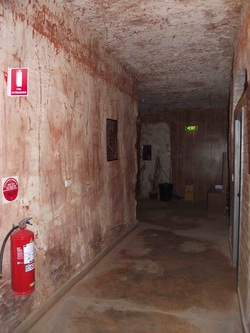Well kind of, and to be more accurate - no, not really. In a small place like NZ, being a "jack of all trades" is sometimes necessary, but recording and live sound have a lot less in common than you may think:
1. Timeframes
In livesound, planning will be done well ahead, but on the day it often becomes a race against the clock, with a very real deadline to meet ie when the performance begins.
In the studio a project may span anything up to several years and a day's work will encompass far less than with live sound. For example, setting up a drum kit, miking it up, and sound checking it could take all day. This would hardly ever be acceptable in live sound.
2. The amount of physical work
Both live sound and studio require long hours (10-12 hr days are common), but unless you are among the top brass, live sound requires lots of lifting. This doesn't apply to studio. At first it might seem that studio work is therefore better, but it depends on the person. Some folk like a degree of physicality in their job.
3. To stay or to go.
Studio work is like going to work in an office. This can either be viewed as 'same old, same old', or convenient and comfortable. Live sound work will often necessitate a change of scenery, and may involve touring (either nationally, or internationally). Life on the road - you will either love it or hate it.
4. Procedural differences
Live sound is about making a live performance louder so the basic idea is easy to understand. Recording has developed (thanks to multi-tracking) into a rather more complex process. This is due to it having several artificial aspects, rather than natural music making ones. There are 3 distinct stages (tracking, overdubbing, and mixdown), and the mixer is more complex to facilitate this.
5. Stereo
Stereo is a requirement for most recordings, and due to phasing and Haas effect issues has to be given serious attention when mixing. A completely different criteria applies for live sound - usually it is wiser to mix the FOH in mono, because in any wide venue people will be hearing only one side of the speaker system.
6. New or Old?
When it comes to equipment, live sound engineers prefer reliable and capable gear. For this reason newer digital mixers have become the standard. Not so in recording where analogue equipment (even if it is vintage) is highly regarded. The sound quality overrides any reliabiilty issues that can (and will) occur.
7. Margin of Error
Live sound engineers work in haste, under less than ideal conditions and therefore develop a 'just lets get the job done' approach to mixing. That's not to say the sound can't be good, but when put against the detailing that goes into a studio recording it is 'rough and ready'. Thus a swap between the two disciplines is similar to a Joiner and a Carpenter trying to do each others jobs.
To sum up, what type of personality you are might well be the deciding factor as to whether you should work in live sound or recording work. If you are an active type and love adventure, the "seat of the pants" way of working in live sound will appeal. OTOH, if you are a perfectionist, patient, and have attention to detail then studio work will most likely suit you better.

